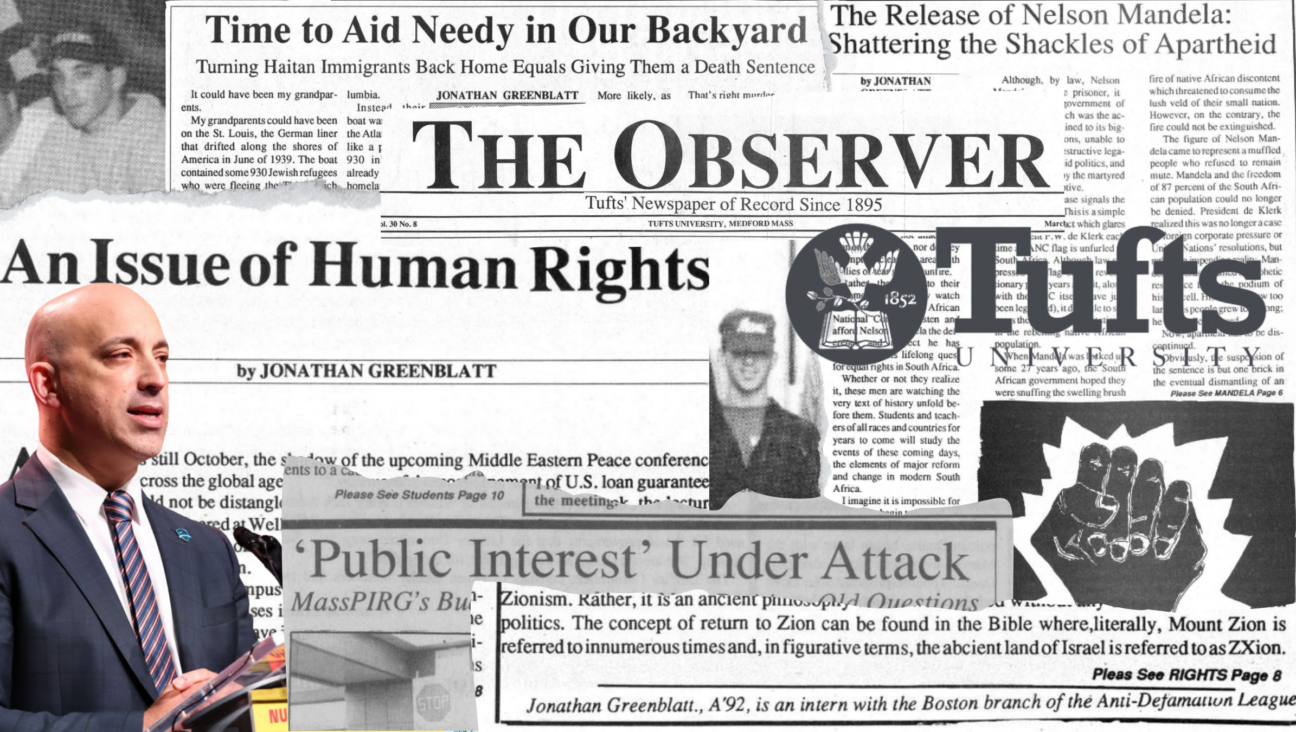Claims Conference Ombudsman Says He Was Dumped Over Critical Report

Image by Getty Images
Shmuel Hollander never asked for the assignment. But when the organization that allocates Holocaust restitution payments told him to investigate reports that its senior officials had failed to pursue a tip-off about fraudsters stealing millions meant for needy survivors, Hollander stepped up to the task.
Now, Hollander, a former top Israeli government civil servant, is out of his job as the first ever ombudsman for the Conference on Jewish Material Claims Against Germany — and the reason he was given, he says, is the report he produced.

Hollander’s critical July 2013 report not only found that “the absence of professional control systems, as well as the absence of computerization…constituted a key factor in enabling, and certainly in facilitating, the fraud.” He found more broadly that the Claims Conference, world Jewry’s largest non-governmental organization in terms of revenue, “was governed in a manner unacceptable in both public and corporate bodies.”
In a June 29 letter to conference board members, Hollander alleged that the group’s chairman, Julius Berman, informed him on June 3 that his contract would not be renewed “in response to the report I prepared for the Select Committee some two years ago.”
The Claims Conference’s spokeswoman, Hillary Kessler-Godin, said that Berman would not be made available for an interview to respond to this contention. She herself declined to confirm or deny Hollander’s account on Berman’s behalf. She did point out that the Claims Conference renewed Hollander’s contract once before, in January 2014—six months after Hollander released the July 2013 report that he now says Berman cited as the cause for his termination.
With his contract now up, Hollander, a child of Holocaust survivors, will leave the Claims Conference today, after less than three years’ service. He took on the Claims Conference job after having served for four decades in senior Israeli government positions, including a senior legal position in the Israeli State Comptroller’s Office and 14 years as the senior official responsible for personnel management of the entire Israeli civil service system.
Kessler-Godin said the ombudsman’s position, which also involves helping elderly Holocaust survivors resolve problems they encounter with Claims Conference staffers and with the process of applying for compensation, will be filled by someone else.
According to Hollander, the Claims Conference’s initial response to his 2013 report reassured him on his independence. “Mr. Berman informed me that he had full confidence in me as Ombudsman” and “that my position in the organization was secure for a protracted period,” he wrote the board members in his letter.
But despite this, “punitive actions towards my office quickly followed,” he wrote. “Numerous obstacles were placed in our path, hampering our work. Relevant information was withheld from us, and formal obligations were violated.”
At one point, according to Hollander, Claims Conference staffers were prohibited from communicating with the ombudsman without prior approval. This made it impossible for him to perform his duties as a liaison between survivors experiencing problems with the agency and those working within it, he said. During the past year Berman himself “has refused to speak to me or meet with me, despite repeated requests,” Hollander told the board.
The Claims Conference initially commissioned Hollander’s report in response to disclosures by the Forward that Berman and other senior conference officials had received a letter with specific information tipping them off to the existence of the fraud eight years prior to its discovery in 2009. Berman oversaw one of two initial inquiries in 2001 that largely confirmed the letter’s allegations, but no further action was taken.
According to Hollander’s subsequent report, Berman, who served at the time as pro bono counsel, failed to investigate the letter’s warnings adequately, as did other senior officials at the Claims Conference. They also failed to inform the Claims Conference board of the tip-off letter, Hollander found, both when it was received in 2001 and years later, after the letter was given to Preet Bharara, the U.S. Attorney for the Southern District of New York, to be used as evidence in a trial against the fraudsters.
By then, the fraudsters — a network of Claims Conference employees who approved false claims submitted to them by outside coconspirators — had diverted at least $57 million in funds from the German government that was meant for needy survivors. “The final sum is in all probability much higher,” Hollander informed the board members in his letter. Thirty-one individuals were ultimately convicted of criminal charges in connection with the massive 15-year fraud. Ten of them were former Claims Conference employees.
The German government’s continued supply of funds to the conference ensured that no bona fide survivors who qualified for compensation under the Claims Conference’s programs were denied restitution. But the Claims Conference and the German government’s Ministry of Finance offer conflicting versions of whether the Claims Conference has been required to compensate the German government for the diverted funds.
Soon after Hollander submitted his report, the Claims Conference board re-elected Berman, a longtime Jewish communal lay leader, as president despite the criticism leveled at him in the report.
Thanks to the large flow of compensation payments it processes from the German government to Holocaust survivors, the Claims Conference had revenues of more $813.5 million in 2013, the most recent year available. It also had assets of more than $1 billion.

I hope you appreciated this article. Before you go, I’d like to ask you to please support the Forward’s award-winning journalism this Passover.
In this age of misinformation, our work is needed like never before. We report on the news that matters most to American Jews, driven by truth, not ideology.
At a time when newsrooms are closing or cutting back, the Forward has removed its paywall. That means for the first time in our 126-year history, Forward journalism is free to everyone, everywhere. With an ongoing war, rising antisemitism, and a flood of disinformation that may affect the upcoming election, we believe that free and open access to Jewish journalism is imperative.
Readers like you make it all possible. Right now, we’re in the middle of our Passover Pledge Drive and we still need 300 people to step up and make a gift to sustain our trustworthy, independent journalism.
Make a gift of any size and become a Forward member today. You’ll support our mission to tell the American Jewish story fully and fairly.
— Rachel Fishman Feddersen, Publisher and CEO
Join our mission to tell the Jewish story fully and fairly.
Only 300 more gifts needed by April 30























